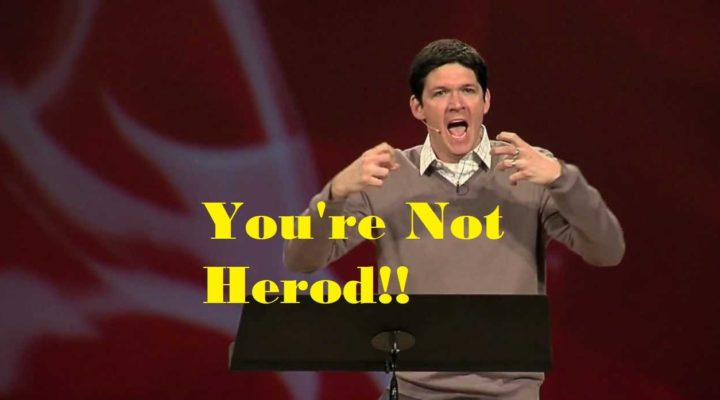Lying Lips
Psalms 119:29 ESV Put false ways far from me and graciously teach me your law!
In the first half of the “Daleth” octet, we saw the psalmist confess to God and ask the Lord to guide him to greater understanding, so that he might not continue to sin against God (Psalm 119:11,26-27). Picking up on that same theme, we begin verse 29 with David’s earnest pleas to be delivered from the sin of lying.
 Lying takes many forms. And because generally speaking, even the unregenerate world has little tolerance for lying, it seems less spoken of by the Church than other sins we see prevalent in our culture. Christians do a fine job (for the most part) of confronting the culture around us and exercising righteous judgment toward the sins our world embraces. We aren’t perfect at it, of course, but I think a lot of cultural confrontation is happening and simply not being broadcast. But when it comes to sins the world also condemns, like lying, I think we are more silent because, after all, that sin is already being railed against by someone.
Lying takes many forms. And because generally speaking, even the unregenerate world has little tolerance for lying, it seems less spoken of by the Church than other sins we see prevalent in our culture. Christians do a fine job (for the most part) of confronting the culture around us and exercising righteous judgment toward the sins our world embraces. We aren’t perfect at it, of course, but I think a lot of cultural confrontation is happening and simply not being broadcast. But when it comes to sins the world also condemns, like lying, I think we are more silent because, after all, that sin is already being railed against by someone.
What is notable is that David is not asking God to forgive sinners for their false ways; nor is David asking for his enemies to be smitten by God, afflicted for their deceit. David is primarily concerned with his own fleshly tendency to embrace that which is not true. God cannot lie (Titus 1:2); Jesus is the truth (John 14:6); the Spirit of Truth exists in utter opposition to the Spirit of Error (1 John 4:6). As fallen creatures who hold to a biblical anthropology, we must see ourselves as constantly in need of grace. We must be on guard against those hidden sins that still try to overtake us. Asking God’s help is essential to victory!
The Law is Useful When Used Properly
Psalms 119:30 ESV I have chosen the way of faithfulness; I set your rules before me.
Psalms 119:32 ESV I will run in the way of your commandments when you enlarge my heart!
And from where does help come? God’s law! Bear with me, I am not saying that the law has the power to enable you to follow it, nor am I saying that the law can make you righteous. Our help comes from the Lord, the maker of Heaven and Earth, through our Lord Jesus Christ and His indwelling Spirit, but does not the Spirit of Jesus Christ love His own law? Is it not simply a reflection of His character? By being graciously taught God’s law, the renewing of our minds is able to take effect so that we will not be conformed to the world, but be transformed. We aren’t saved or made righteous by God’s law, but the righteous desire to know God’s law because we already have a desire to obey God.
So you see, it is by grace through faith that we are saved, and it is also through faith that we are taught the way of the Lord. It is through believing what God has said (faith) that we know how to live a life that is pleasing to Him. Because God is Spirit, we need an image, if you will, to help us grasp even the tiniest bit of knowledge about Him. God’s law or His rules are manifestations of His perfections. His moral law is at least a partial description of who He is, therefore, to understand it is to know Him better. This is the understanding we need so that we might be conformed to Christ’s image.
 Exposure to God’s law has the same effect on everyone: it opens their eyes to God’s holiness and their own unholiness. So it is no wonder that the law produces the opposite response in unregenerate souls and on the flesh of believers as it does in those who are led by the spirit. For it is the law that tells us about God, and it is the law that stirs the ungodly passions of the flesh (Romans 7:9-11). Setting God’s rules before anyone will have one of two effects, it will either drive an unrighteous person to desire to break those rules, or it will break a righteous person’s heart that he or she struggles to obey them. This is why we must preach God’s law along with His beautiful gospel. Sinners and saints alike need to hear it!
Exposure to God’s law has the same effect on everyone: it opens their eyes to God’s holiness and their own unholiness. So it is no wonder that the law produces the opposite response in unregenerate souls and on the flesh of believers as it does in those who are led by the spirit. For it is the law that tells us about God, and it is the law that stirs the ungodly passions of the flesh (Romans 7:9-11). Setting God’s rules before anyone will have one of two effects, it will either drive an unrighteous person to desire to break those rules, or it will break a righteous person’s heart that he or she struggles to obey them. This is why we must preach God’s law along with His beautiful gospel. Sinners and saints alike need to hear it!
Verse 32 tells us that the psalmist will run in the way of God’s commandments when God enlarges his heart. This is another affirmation of God’s sovereignty over our salvation. He holds the king’s heart in his hands…using the argument of the greater to the lesser…he holds yours as well. But do not miss the affirmation of man’s responsibility (“I have chosen” vs 30, “I cling” vs 31, “I run” vs 32). We are responsible for our choices and we must preach in such a way that both the truth of God’s sovereignty and the reality of man’s responsibility is proclaimed. But truly, we will only be put far away from falsehood, choose faithfulness, and run in the way of God’s commandments if He first circumcises our hearts of stone!
The Nature of Shame
Psalms 119:31 ESV I cling to your testimonies, O LORD; let me not be put to shame!
Earlier in the psalm, we saw that God’s testimonies are the delight of the psalmist and are his counselors (Psalm 119:24). Those who keep his testimonies are blessed (Psalm 119:2). As we’ve worked our way through this octet, we have seen the psalmist confess, earnestly ask God to keep him from false ways, and focus on God’s rules and testimonies. The prayers are all designed to lead to righteousness in order that the psalmist may not be put to shame. This is the second time the psalmist asks that he not be put to shame (Psalm 119:6); each time he makes this request it follows adherence to God’s commands. In other words, failure to observe God’s testimonies results in being put to shame.
Shame is a word that has lost its zing in the 21st century. In the era of self-esteem and self-actualization and self-literally-everything, actually being ashamed is the only sin. The prophet Jeremiah mentions more than once that (Jeremiah 8:12;6:15) when the people committed abominations they no longer knew how to blush. This is a description of the hardening of the conscience. We are not better off today; the quote below nicely sums up how our world views shame.
Shame is the most powerful, master emotion. It’s the fear that we’re not good enough. Brene Brown
Brainy Quote
Every child of Adam will seek to eliminate or shift their shame. You and I should be ashamed of what we’ve done—even who we are. All we like sheep have gone astray (Isaiah 53:6). We’ve all become worthless (Romans 3:12). We don’t actually “fear that we’re not good enough,” as the quote above implies. We know deep down inside that we are not. But our love of ungodliness and unrighteousness demands that we suppress this truth. No child of Adam is willing to blame his own sin for his sense of shame and turn from it apart from salvation. So it abides. And it’s as if God has designed us to desire to be rid of shame. Instinctually, we hate that feeling. So we do the only thing we can, and we get rid of it. And we get rid of the shame by pretending it is not there.
Shame Shifting
We use maxims like the one above which, when taken to its logical ends, teaches us to ignore shame. Because we believe we are good enough, we are sure shame must be wrong. We seek 12 step groups, self-help books, religious exercises, even personal discipline to take on which helps us feel better about ourselves so that we might not feel the shame. We even become more religious if it fits our disposition. We are shame shifters by nature!
But only Jesus Christ lived a life of perfect obedience to God’s commands. Only Jesus lived a life completely free of shame. But that’s the point, isn’t it? Shame, the result of a conscience present within a life not lived correctly, was something that Jesus ultimately could not experience. As a perfect man, He utterly obeyed the Father in Heaven and had no reason to be ashamed. He committed no sin, neither was deceit found in His mouth. And yet, as if breathing 33 years of our sin cursed-air wasn’t enough condescension, Jesus bore our shame. Jesus is a shame shifter of a different type than we are! He took on the shame of His people.
 Jesus Christ, our substitute actually became the very object of shame for us. Jesus became sin—the very thing He hates the most—in order to bring us to God. He endured the cross, despising the shame (Hebrews 12:2). Why? For the joy set before Him. And what is His joy? You could say His Father and His Holy Spirit, but Jesus has always been in fellowship with them. I have to conclude that at least part of the joy that Jesus set before Himself was the joy He has in His bride: the bride of Christ, for whom He died on the cross. Yes, Jesus takes great joy in you, dear saint, today. No matter what you’ve done, all the shame you feel, the actual sin debt has been paid.
Jesus Christ, our substitute actually became the very object of shame for us. Jesus became sin—the very thing He hates the most—in order to bring us to God. He endured the cross, despising the shame (Hebrews 12:2). Why? For the joy set before Him. And what is His joy? You could say His Father and His Holy Spirit, but Jesus has always been in fellowship with them. I have to conclude that at least part of the joy that Jesus set before Himself was the joy He has in His bride: the bride of Christ, for whom He died on the cross. Yes, Jesus takes great joy in you, dear saint, today. No matter what you’ve done, all the shame you feel, the actual sin debt has been paid.
It is as if YOU have clung to God’s testimonies so that YOU will not be put to shame. That is the effect of the glorious doctrine of imputation, and Jesus takes great joy in good doctrine and His dear bride. These things I have spoken to you that my joy may be in you…John 15:10. Jesus exults over you with singing, as a bridegroom with His bride (Zeph 3:17). Dear Christian, if even the devil himself tries to make you live in shame, cling to the Savior who bore it all on your behalf! Rest in Jesus Christ alone, for only He could remove your shame.
See all posts in this series
[loop type=”post” taxonomy=”tag” value=”Psalm 119″ format=”clean” orderby=date order=ASC author=same]
[field title-link][/loop]







[…] my last article I addressed some of the problems with annihilationism and how it is a departure from the…